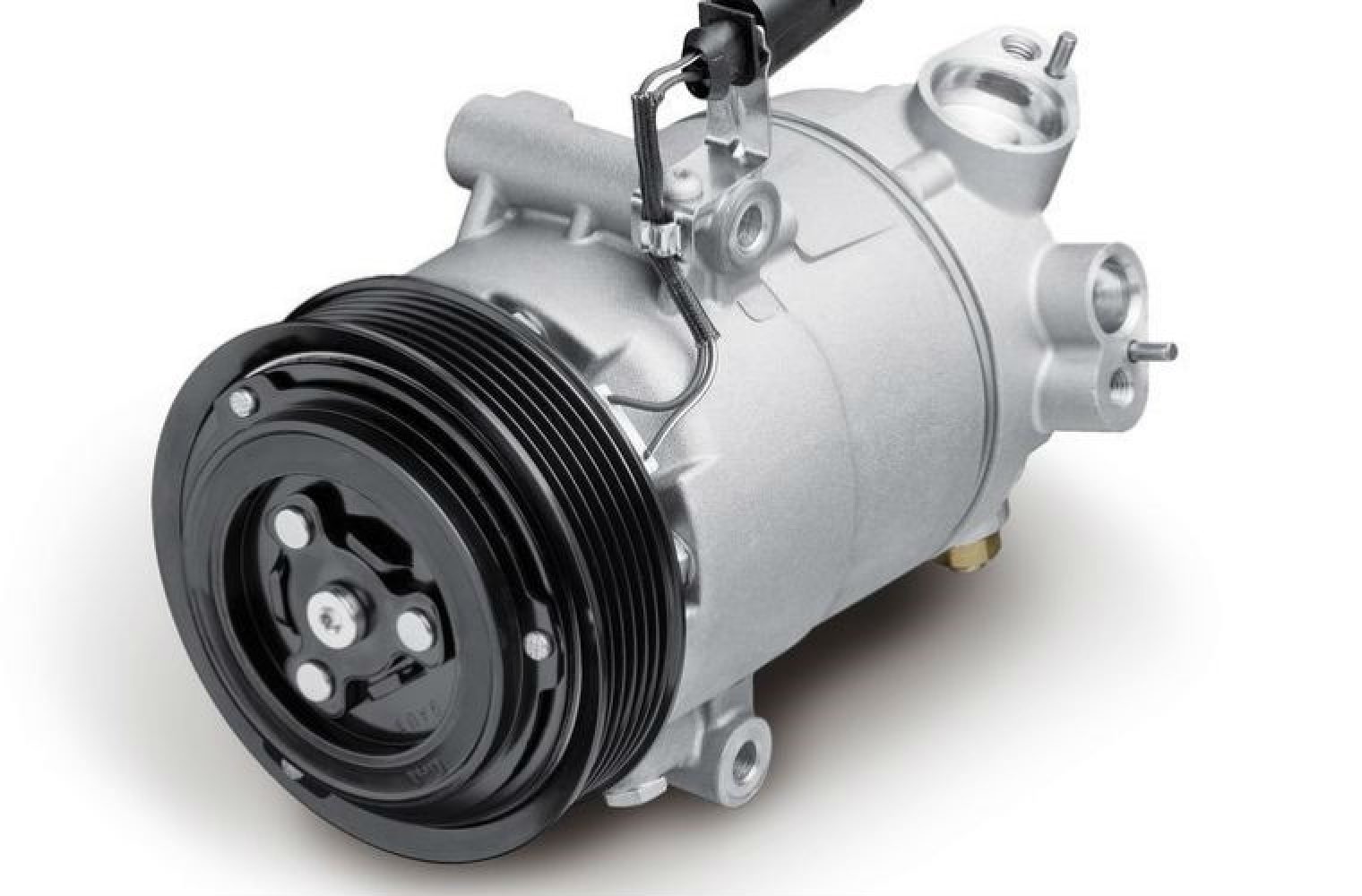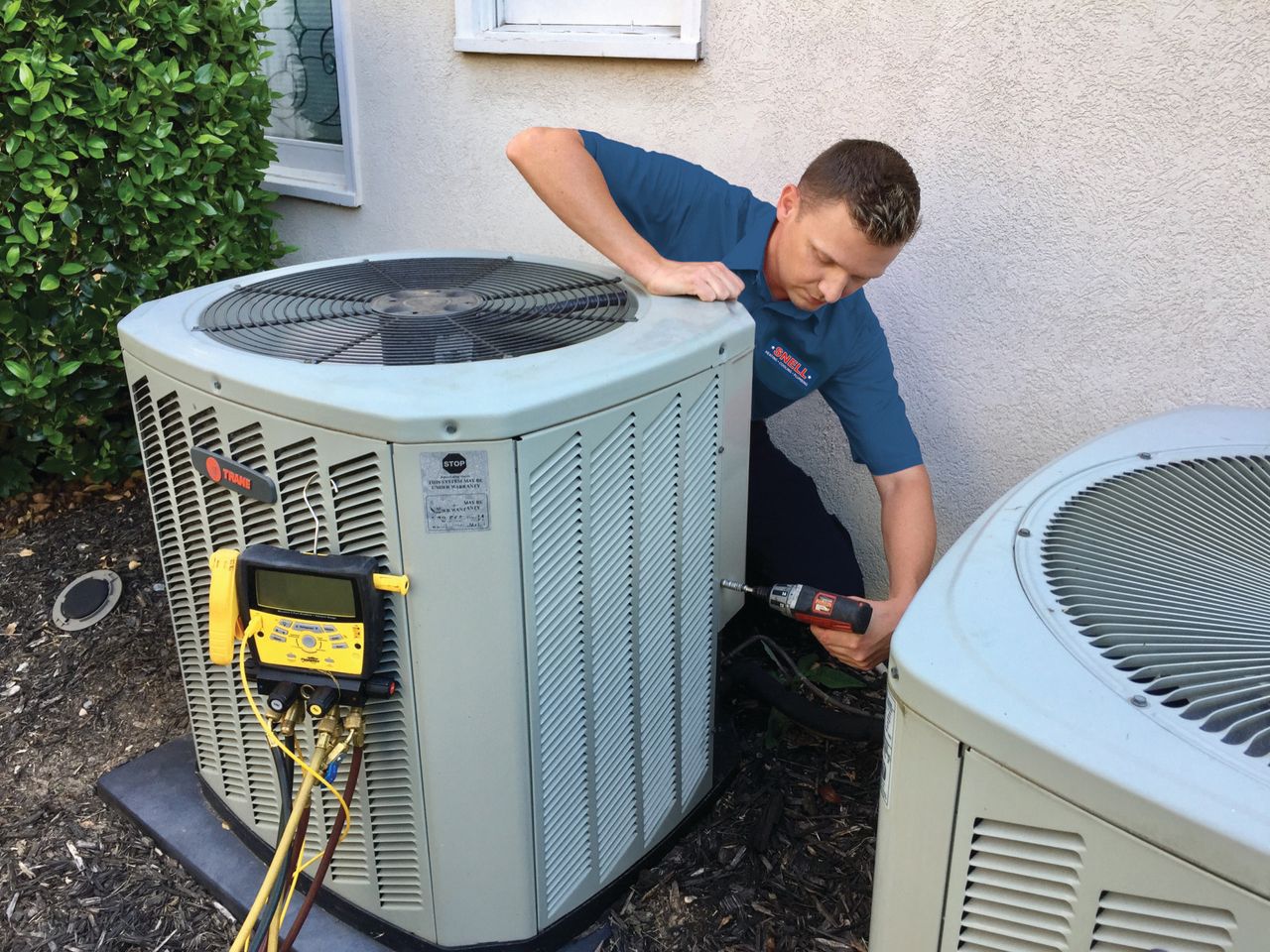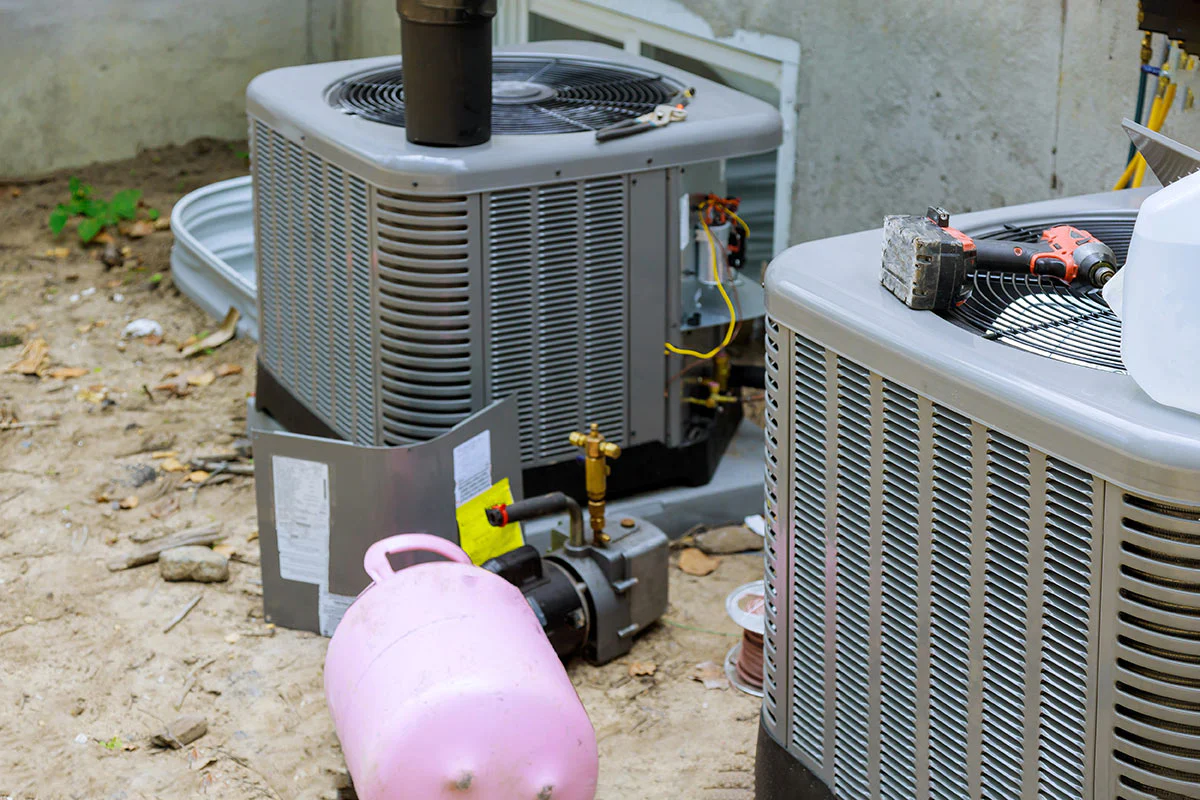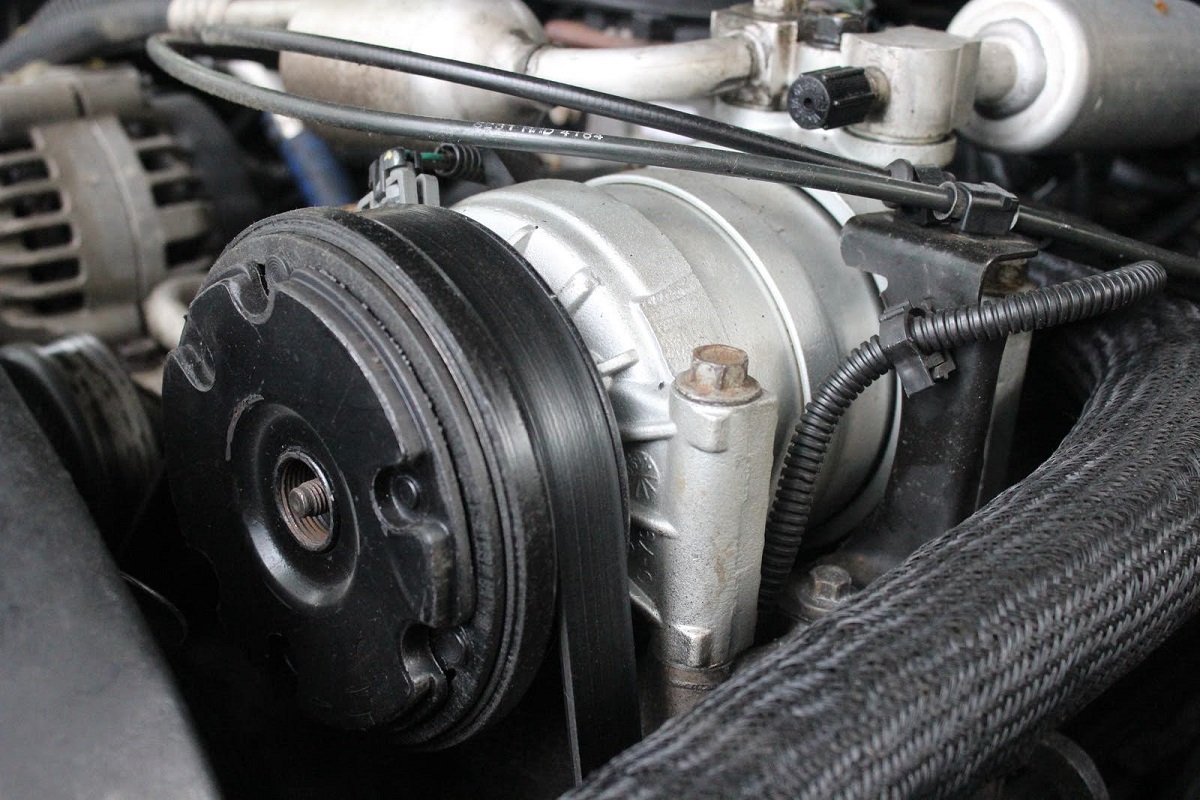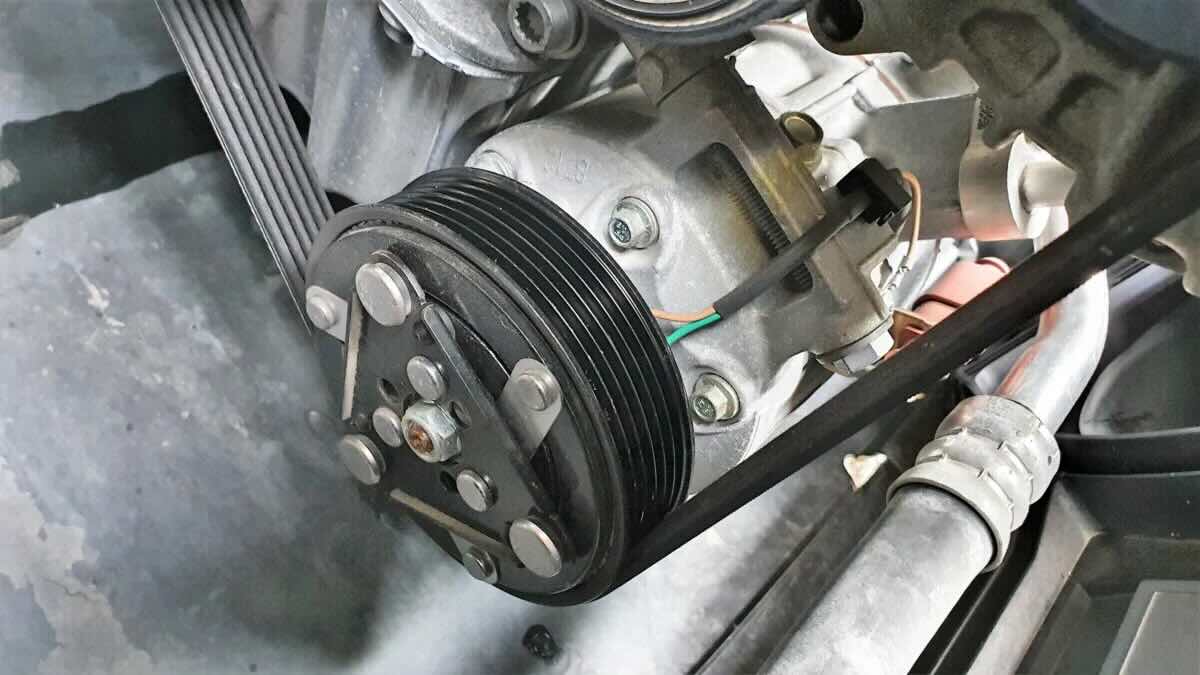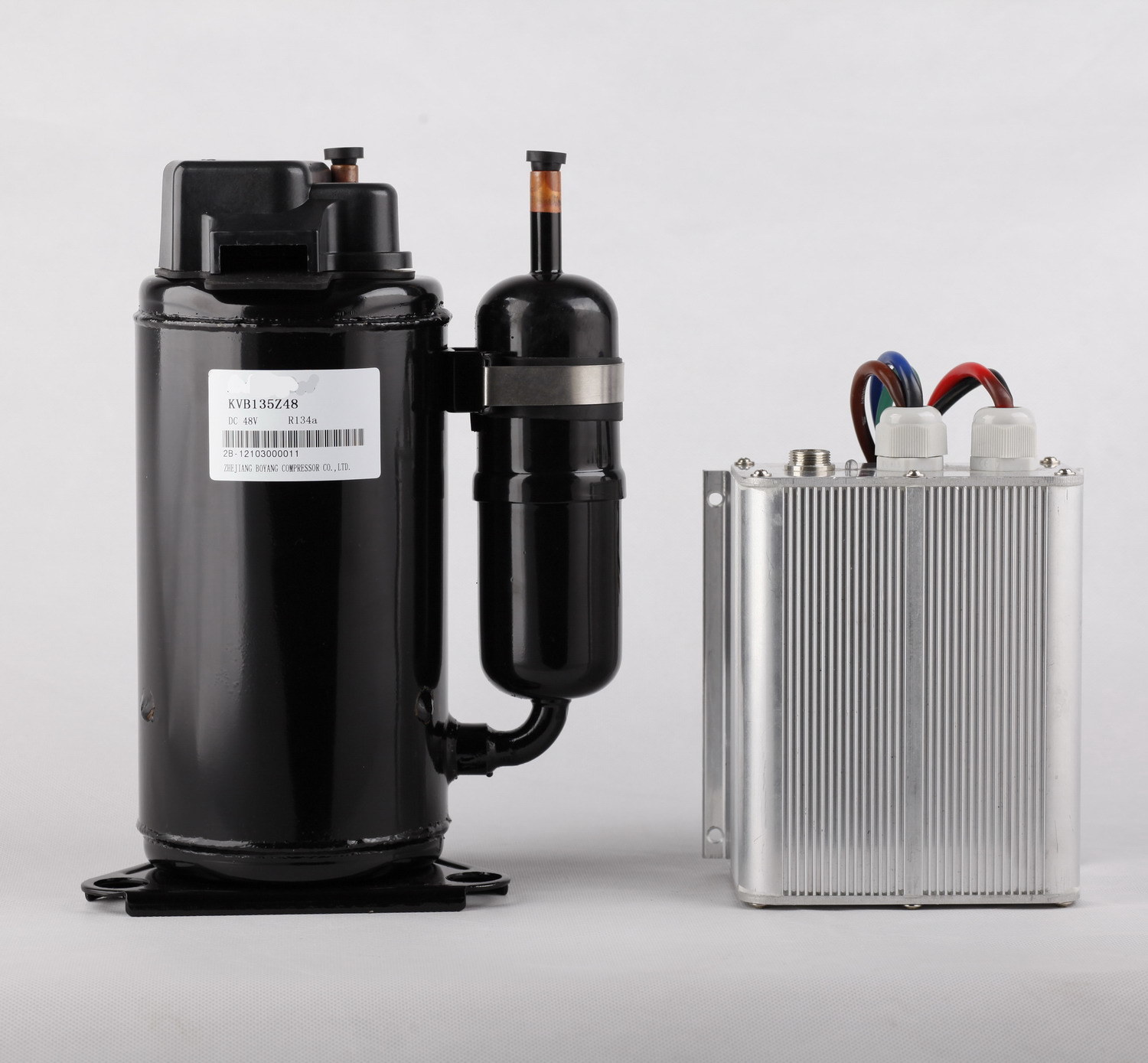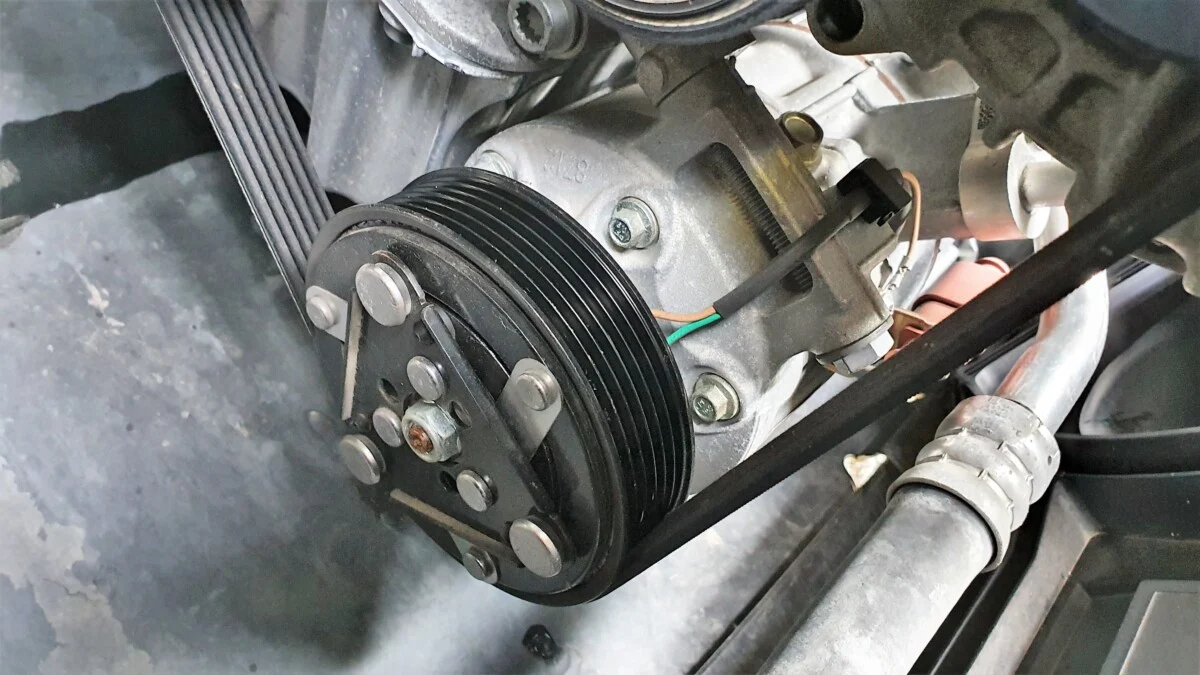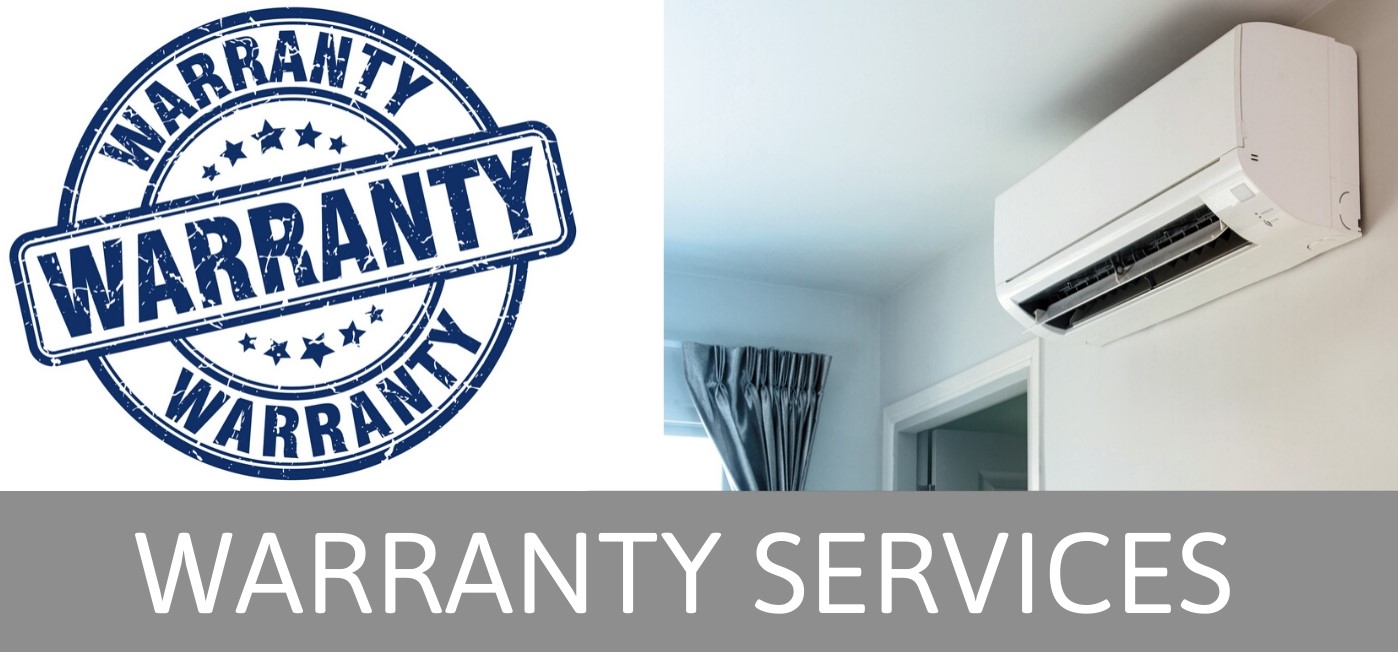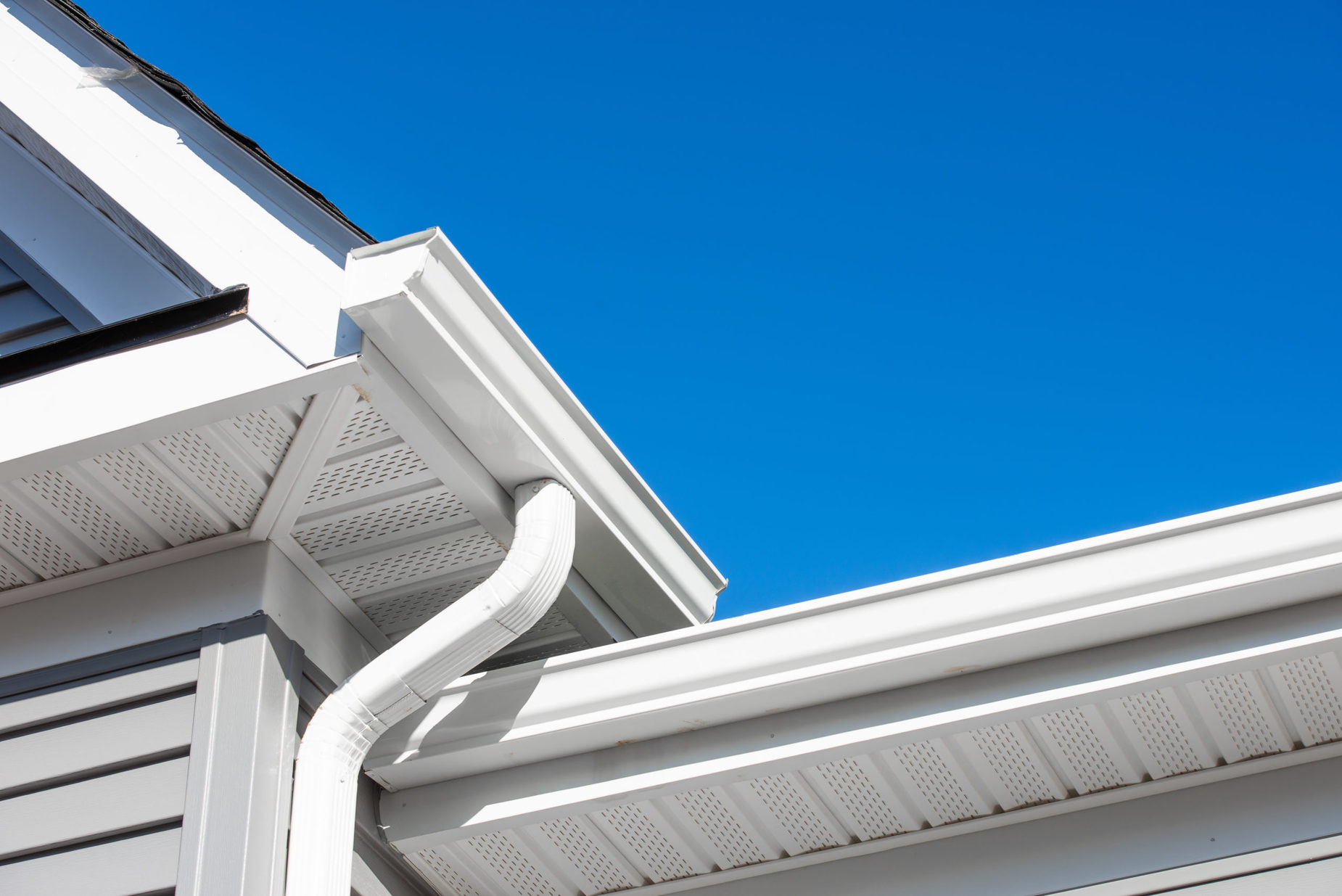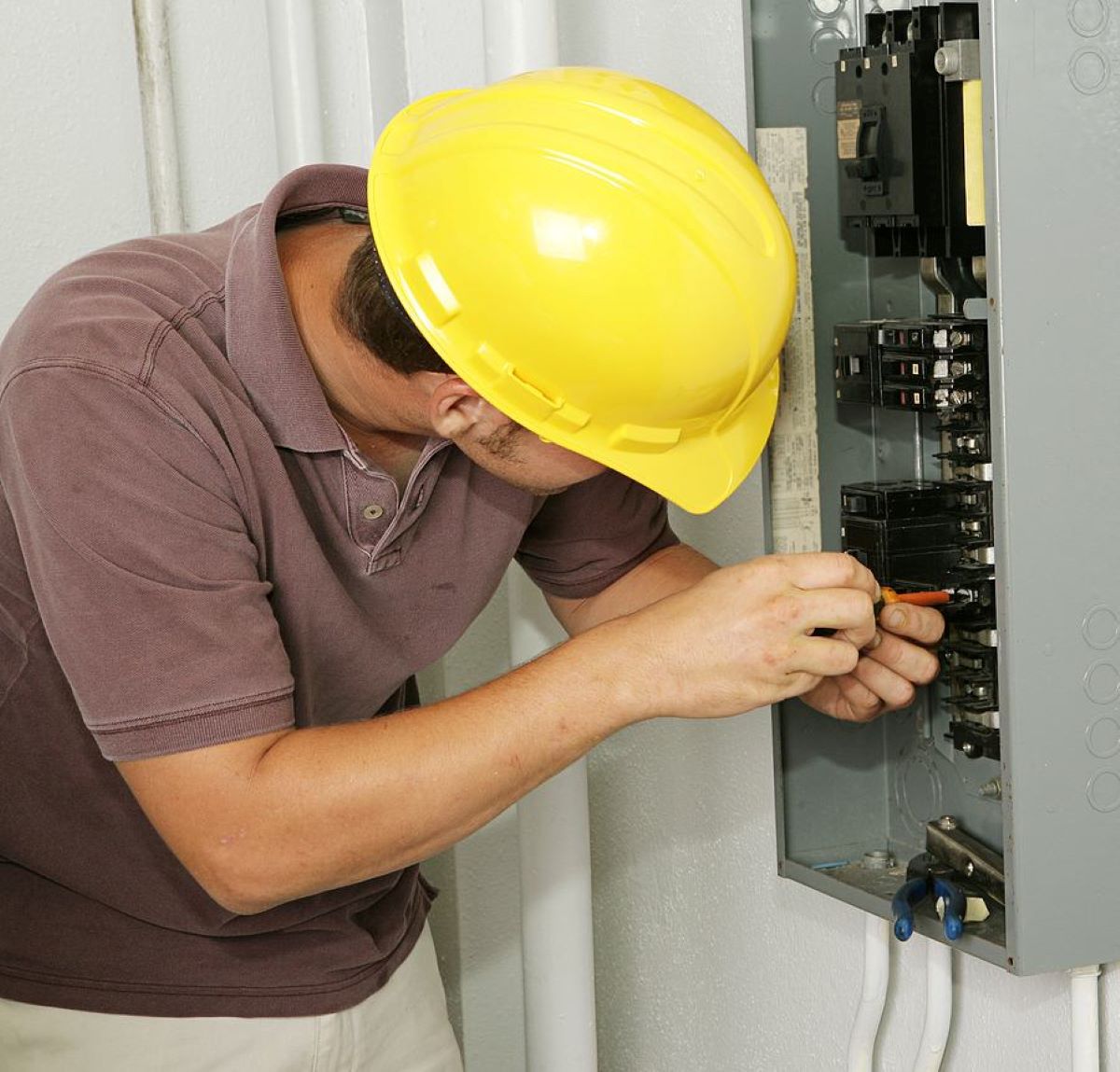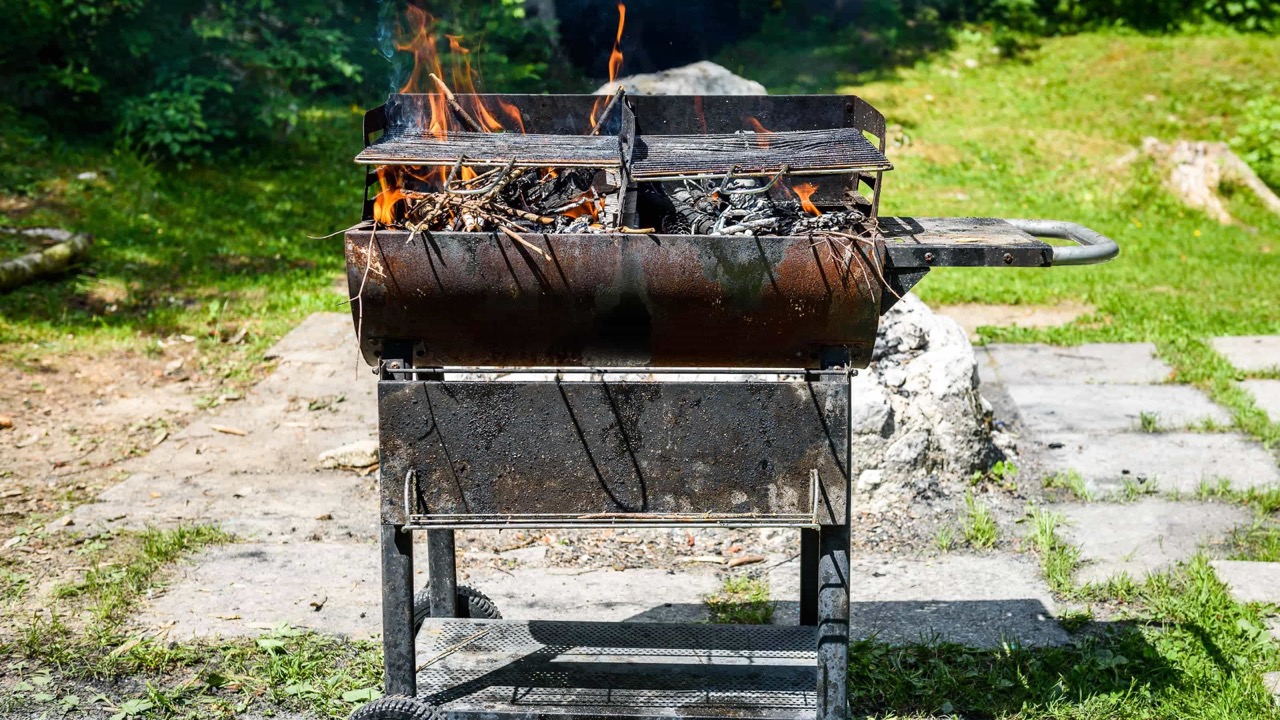Home>Home Maintenance>How Long Do Air Conditioner Compressors Last
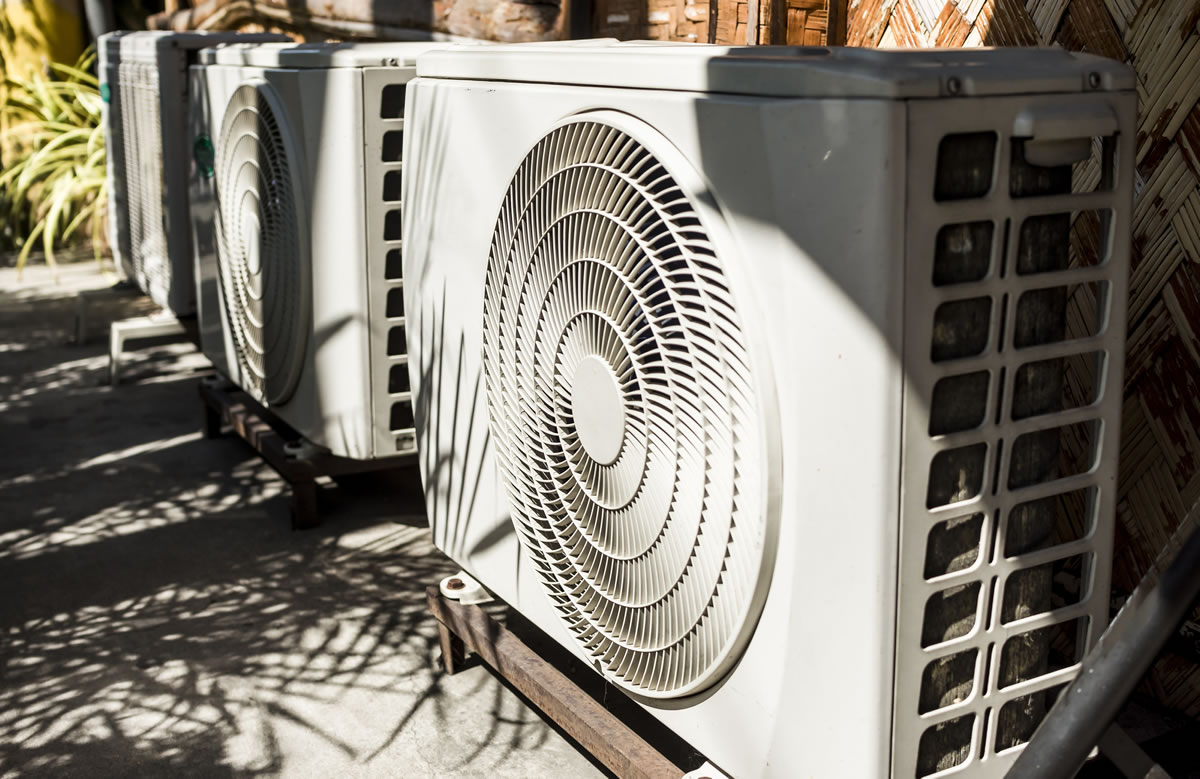

Home Maintenance
How Long Do Air Conditioner Compressors Last
Modified: March 7, 2024
Discover the lifespan of air conditioner compressors with our ultimate guide on home maintenance. Get expert insights on how long they typically last and tips to ensure optimal performance.
(Many of the links in this article redirect to a specific reviewed product. Your purchase of these products through affiliate links helps to generate commission for Storables.com, at no extra cost. Learn more)
Introduction
Welcome to our comprehensive guide on air conditioner compressors! If you’re a homeowner or someone responsible for maintaining the cooling system in your home, understanding how long air conditioner compressors last and how to properly care for them is essential.
An air conditioner compressor plays a crucial role in the cooling process of your AC unit. It is responsible for compressing the refrigerant and circulating it through the system to remove heat from the indoor air. Without a functioning compressor, your air conditioner will not be able to cool your home effectively.
In this article, we will explore the lifespan of air conditioner compressors, the factors that affect their longevity, signs of a failing compressor, and tips to extend their lifespan. Whether you are considering purchasing a new AC unit or looking to prolong the life of your existing one, this guide will provide you with the information you need.
So, let’s dive in and uncover the secrets of air conditioner compressors!
Key Takeaways:
- Air conditioner compressors typically last 10-15 years, but proper maintenance, cleaning, and addressing issues promptly can extend their lifespan. Regular care ensures efficient and reliable cooling for your home.
- Signs of a failing compressor include warm air, reduced airflow, strange noises, and frequent cycling. Seeking professional help early can prevent further damage and costly repairs.
Read more: What Does An Air Conditioner Compressor Do
Understanding Air Conditioner Compressors
Before we delve into the lifespan and maintenance of air conditioner compressors, let’s first understand how they work. An air conditioner compressor is a vital component of your cooling system that is responsible for transferring heat from your home’s indoor air to the outdoor environment.
When you turn on your air conditioner, the compressor starts working by compressing the refrigerant gas. This compression process increases the temperature and pressure of the refrigerant. Once the refrigerant reaches high pressure, it flows to the condenser coils located on the outside unit of your air conditioner.
The condenser coils release the heat absorbed from inside your home, allowing the refrigerant to cool down and condense back into a liquid state. The cooled refrigerant then flows to the evaporator coils, located in the indoor unit of your air conditioner.
As the warm air from your home passes over the evaporator coils, the refrigerant absorbs the heat, cooling the air. The cool air is then circulated back into your home through the supply vents, while the heated refrigerant returns to the compressor to start the process again.
Essentially, the air conditioner compressor is the heart of the cooling system, as it is responsible for the circulation of the refrigerant, which extracts heat from your home. Without a functioning compressor, the cooling process would not be possible.
There are different types of compressors used in air conditioning systems, including reciprocating compressors, scroll compressors, and rotary compressors. Each type has its own advantages and operates slightly differently, but the overall goal remains the same: to compress the refrigerant and facilitate the heat transfer process.
Now that we have a better understanding of how air conditioner compressors work, let’s explore the factors that can affect their lifespan.
Factors Affecting the Lifespan of Air Conditioner Compressors
The lifespan of an air conditioner compressor can vary depending on several factors. By understanding these factors, you can take appropriate measures to extend the life of your compressor. Let’s take a closer look at the key factors that can impact the lifespan of air conditioner compressors:
- Quality of the Compressor: The quality of the compressor itself plays a significant role in its lifespan. Higher-quality compressors are generally built to withstand wear and tear better, resulting in a longer lifespan. Investing in a reputable brand and a compressor with good reviews can increase the chances of it lasting longer.
- Usage and Demand: How often and how intensely your air conditioner is used can impact the lifespan of the compressor. Constantly running the AC at maximum capacity or in extreme weather conditions can put excessive strain on the compressor, potentially shortening its life. An appropriately sized unit that is not overworked will generally have a longer lifespan.
- Maintenance and Cleaning: Regular maintenance and cleaning are crucial for the longevity of air conditioner compressors. Over time, dirt, debris, and dust can accumulate on the compressor and its surrounding components, leading to reduced efficiency and potentially causing additional strain. Routine cleaning, such as removing debris and dust, can help prevent premature compressor failure.
- Proper Installation: The installation of the air conditioning system, including the compressor, must be done correctly. Improper installation can lead to uneven wear and tear, inadequate refrigerant flow, and mechanical issues that can all contribute to a reduced compressor lifespan. Hiring a professional HVAC technician for installation is highly recommended.
- Power Surges and Electrical Issues: Power surges and electrical issues can cause damage to the compressor. Voltage spikes or fluctuations in the electrical supply can stress the compressor motor and other components, potentially leading to premature failure. Installing surge protectors and regularly checking the electrical connections can help mitigate these risks.
- Environmental Factors: The environment in which the air conditioner operates also affects the compressor’s lifespan. Exposure to extreme temperatures, corrosive elements, and moisture can all contribute to deterioration and damage. Protecting the outdoor unit from direct sunlight and ensuring proper drainage can help mitigate these environmental factors.
By considering these factors and taking appropriate measures, you can help maximize the lifespan of your air conditioner compressor. In the next section, we will explore the average lifespan of air conditioner compressors.
Average Lifespan of Air Conditioner Compressors
As a homeowner, it’s important to know the average lifespan of air conditioner compressors so you can plan for maintenance or replacement when the time comes. While the lifespan can vary depending on various factors, the following are general guidelines for the average lifespan of air conditioner compressors:
On average, air conditioner compressors can last anywhere from 10 to 15 years. However, this timeframe is not set in stone and can be influenced by several factors, as discussed earlier. Some compressors may last longer with proper maintenance and care, while others may experience issues sooner due to external factors.
It’s important to note that the lifespan of the compressor is not necessarily indicative of the lifespan of the entire air conditioning unit. Other components, such as the coils, fans, and electrical controls, may have different lifespans and may require attention or replacement before or after the compressor reaches the end of its lifespan.
If your air conditioner compressor fails within the first few years of installation, it may be covered by the manufacturer’s warranty. However, it’s always advisable to check the warranty terms and conditions to ensure coverage.
If your compressor is older and experiencing frequent breakdowns or inefficiencies, it may be more cost-effective in the long run to replace the entire air conditioning unit instead of continually repairing the compressor. Consult with a qualified HVAC technician to determine the best course of action for your specific situation.
Remember, regular maintenance and care can help extend the lifespan of your air conditioner compressor. By following a preventive maintenance schedule and addressing issues promptly, you can help ensure that your compressor operates efficiently and lasts as long as possible.
Now that we have discussed the average lifespan of air conditioner compressors, let’s move on to the next section to explore the signs of a failing compressor.
Regular maintenance and cleaning can help extend the life of an air conditioner compressor. Keep the coils clean and have a professional inspect and service the unit annually.
Signs of a Failing Air Conditioner Compressor
When an air conditioner compressor starts to fail, it’s important to recognize the signs early on to avoid further damage to the unit. Ignoring these signs can lead to costly repairs or the need for a complete system replacement. Here are some common signs that indicate a failing air conditioner compressor:
- Warm Air: If your air conditioner is blowing warm air instead of cool air, it could be a sign of a compressor problem. The compressor is responsible for cooling the refrigerant and circulating it throughout the system. When it fails, the cooling process is affected, resulting in warm air blowing from the vents.
- Reduced Airflow: A failing compressor can lead to reduced airflow from your air conditioner. You may notice that the airflow is weak or that certain rooms are not receiving adequate cooling. This could be due to the compressor’s inability to efficiently pressurize and circulate the refrigerant.
- Strange Noises: Unusual noises coming from the compressor or outdoor unit can be an indication of a problem. Banging, clanking, or grinding noises may suggest loose or damaged compressor components. If you notice any unusual sounds, it’s best to have a professional technician inspect the unit.
- Tripped Circuit Breaker: A failing compressor can draw excessive electrical current, causing the circuit breaker to trip. If you frequently experience the breaker tripping when the air conditioner is running, it may be a sign that the compressor is struggling and needs attention.
- Inconsistent Cooling: If you notice inconsistent cooling throughout your home, with some rooms being cooler than others, it may indicate a compressor issue. A failing compressor may struggle to maintain consistent cooling and cause temperature variations.
- Frequent Cycling: If your air conditioner compressor is constantly cycling on and off, it could be a sign of a failing compressor. This cycling behavior may be caused by pressure irregularities within the compressor, leading to energy inefficiency and potential breakdowns.
If you experience any of these signs, it’s important to have a qualified HVAC technician inspect and diagnose the issue. They can determine the root cause of the problem and recommend the appropriate repair or replacement options. Remember, addressing compressor issues early can help prevent further damage and extend the lifespan of your air conditioning system.
Now that we have explored the signs of a failing air conditioner compressor, let’s move on to the next section where we will discuss how to extend the lifespan of your compressor.
Read more: How To Replace An Air Conditioner Compressor
Extending the Lifespan of Air Conditioner Compressors
While the lifespan of air conditioner compressors can vary, there are several measures you can take to extend their lifespan and ensure optimal performance. By following these tips, you can help maximize the efficiency and longevity of your air conditioning system:
- Regular Maintenance: Schedule annual maintenance checks with a qualified HVAC technician. They will inspect your air conditioner, clean the components, and address any potential issues. Regular maintenance can help identify and fix problems before they escalate and cause damage to the compressor.
- Clean the Outdoor Unit: Keep the outdoor unit clean and free from debris, such as leaves, grass, and dirt. Regularly check and clean the condenser fins and coils to ensure optimal airflow. Restricted airflow can put strain on the compressor and decrease its efficiency.
- Change Air Filters: Replace or clean air filters regularly to maintain proper airflow and prevent dust and debris from clogging the system. Clogged filters can restrict airflow, leading to increased strain on the compressor.
- Protect from Extreme Weather: Shield the outdoor unit from extreme weather conditions as much as possible. Excessive heat or cold can negatively impact the compressor’s performance. Consider using a cover or building a shade structure to protect the unit.
- Optimize Thermostat Settings: Set your thermostat to a temperature that promotes energy efficiency and minimizes unnecessary strain on the compressor. Avoid constant temperature adjustments that cause the compressor to work harder than necessary.
- Address Electrical Issues: Ensure the electrical connections to the air conditioner unit are secure and free from corrosion. Monitor for any electrical issues, such as frequent circuit breaker trips, and address them promptly to prevent damage to the compressor.
- Install Surge Protectors: Consider installing surge protectors to safeguard the air conditioning system against power surges. These surges can damage the compressor and other electrical components if left unprotected.
- Proper Sizing and Installation: When replacing or installing an air conditioner, ensure proper sizing and professional installation. An improperly sized unit or installation can lead to increased strain on the compressor, impacting its lifespan.
- Avoid Overworking the System: Be mindful of your air conditioner usage and avoid constantly running it at maximum capacity. Give your system periodic breaks to prevent excessive strain on the compressor.
By implementing these practices, you can help extend the lifespan of your air conditioner compressor and optimize the overall performance of your cooling system. Regular maintenance, proper cleaning, and addressing issues promptly will not only save you money on repairs but also ensure a comfortable and efficient cooling experience in your home.
In the next section, we will provide some specific maintenance and care tips for air conditioner compressors.
Maintenance and Care Tips for Air Conditioner Compressors
Proper maintenance and care are essential for the longevity and performance of air conditioner compressors. By following these maintenance tips, you can ensure that your compressor operates efficiently and extends its lifespan:
- Regular Cleaning: Clean the outdoor unit regularly by removing any leaves, debris, or dirt that may have accumulated. Use a soft brush or vacuum cleaner to gently clean the condenser fins and coils. Clogged fins restrict airflow and can cause strain on the compressor.
- Clean or Replace Air Filters: Clean or replace the air filters regularly, typically every 1-2 months or as recommended by the manufacturer. Dirty filters restrict airflow and can lead to reduced efficiency, increased strain on the compressor, and potentially higher energy bills.
- Inspect for Damage: Regularly inspect the outdoor unit for any signs of damage or wear. Look for bent condenser fins, leaks, or loose connections. If you notice any issues, contact a qualified HVAC technician for professional assistance.
- Check Refrigerant Levels: Low refrigerant levels can put strain on the compressor and affect the cooling efficiency of your system. If you notice that your air conditioner is not cooling adequately, contact a professional to check and replenish the refrigerant if necessary.
- Schedule Professional Maintenance: Arrange for annual maintenance checks with a licensed HVAC technician. They will perform a comprehensive inspection, clean the system, check refrigerant levels, and address any potential issues to keep your compressor running smoothly.
- Keep the Surrounding Area Clear: Ensure that the area around the outdoor unit is clear of obstructions such as plants, bushes, or debris. Keep a clearance of at least 2-3 feet around the unit to allow for proper airflow and maintenance access.
- Monitor Thermostat Settings: Optimize your thermostat settings to a comfortable temperature that does not overwork the compressor. Avoid drastic temperature adjustments, as this can cause the compressor to operate inefficiently and put unnecessary strain on the system.
- Ensure Proper Ventilation: Ensure that the supply and return vents inside your home are not blocked by furniture or obstructions. Proper airflow throughout your home allows for efficient cooling and reduces strain on the compressor.
- Address Issues Promptly: If you notice any unusual noises, changes in cooling performance, or other signs of compressor failure, contact a professional HVAC technician promptly. Timely repairs can prevent further damage and help extend the lifespan of your compressor.
By following these maintenance and care tips, you can help ensure the longevity and efficiency of your air conditioner compressor. Regular cleaning, proper filter maintenance, and professional inspections will go a long way in keeping your cooling system running smoothly.
Now that you are armed with valuable knowledge on maintaining and caring for air conditioner compressors, let’s conclude our guide in the next section.
Conclusion
Caring for and maintaining your air conditioner compressor is essential for keeping your home cool and comfortable. Understanding the lifespan of air conditioner compressors, the factors that can affect their longevity, and the signs of a failing compressor empowers you to make informed decisions about repair or replacement. By following the proper maintenance and care tips, you can extend the lifespan of your compressor and optimize the performance of your cooling system.
Remember, regular maintenance checks by qualified HVAC technicians, proper cleaning, and addressing issues promptly are key to ensuring your compressor operates efficiently. Routine tasks such as changing air filters, clearing debris around the outdoor unit, and monitoring thermostat settings can make a significant difference in the lifespan of your compressor.
If you notice any signs of a failing compressor, such as warm air, reduced airflow, strange noises, or frequent cycling, it’s crucial to seek professional assistance. Ignoring these signs can lead to further damage and potentially costly repairs.
By taking proactive steps to care for your air conditioner compressor, you can enjoy a cool and comfortable home for years to come. Regular maintenance, proper cleaning, and addressing issues promptly will not only extend the lifespan of your compressor but also ensure efficient and reliable cooling performance.
We hope this comprehensive guide has provided you with valuable insights and advice on maintaining and caring for your air conditioner compressor. With the knowledge gained, you are well-equipped to make informed decisions and maximize the lifespan of your cooling system.
Stay cool and enjoy a comfortable home!
Frequently Asked Questions about How Long Do Air Conditioner Compressors Last
Was this page helpful?
At Storables.com, we guarantee accurate and reliable information. Our content, validated by Expert Board Contributors, is crafted following stringent Editorial Policies. We're committed to providing you with well-researched, expert-backed insights for all your informational needs.
